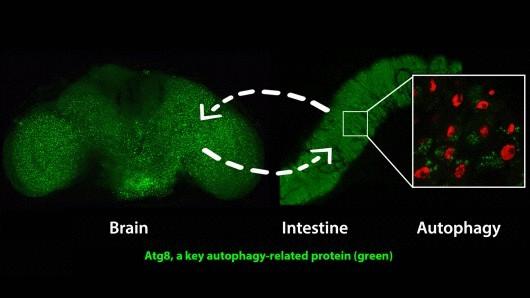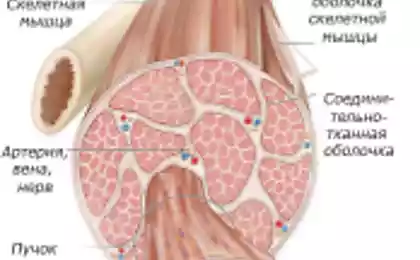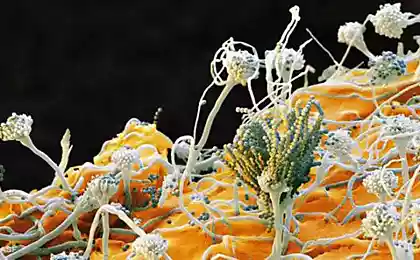496
Activation of the gene AMPK in key organs and slows the aging process throughout the body

Scientists were able to six weeks to prolong the lifespan of fruit flies. Insect participated in studies to slow the aging process. This made a team of biologists from the University of UCLA by activating gene AMPK. Scientists hope that the new discovery is of great interest for humanity and will help to slow the aging process and age-related changes in humans.
AMPK (adenosine monophosphate-activated protein kinase) is an enzyme that acts as a major metabolic switch and is activated in response to low energy level of the cell. After the process of activation of a cellular process known as autophagy. Cells faster and easier to get rid of "waste", i.e. waste products, resulting in their damage, thus protecting cells from aging. This gene AMPC is in the human body, but generally it is not used in full.
The research group of the University ULCA found that by increasing the number of gene AMPK in the intestines of fruit flies (Drosophila black-bellied), and increased her lifespan by about 30%. The life cycle of the insect with the conventional six weeks was increased to eight weeks. It is also important that the flies stayed healthier longer, even those bodies that have not been therapy.
"We have seen that when activating the gene in the intestine or in cells of the nervous system experiences the process of aging throughout the body, that is, even in those organs in which the activation was performed of the gene," said David Walker, associate Professor of integrative biology and physiology at UCLA and senior author of the study.
"This is truly an interesting finding was discovered when Matt (the study's lead author, Matthew Algret) activating AMPK in the nervous system and saw the evidence of increased autophagy not only in brain but also in the intestine," said Walker. And Vice versa: activation AMPK in the gut increases the level of autophagy in the brain and perhaps other organs, too."
Walker notes that this study is of great importance for slowing down the aging process of the human body organs and his brain. Activation of the gene in the intestine is technically easier than, say, in other key organs, especially the brain.
"Instead of wasting efforts on the study of age-related diseases separately, such as Parkinson's disease, Alzheimer's disease, cancer, stroke, cardiovascular disease, diabetes, we believe it is possible to intervene in the aging process and delay the onset of many of these diseases," Walker says. "However, we are still far from achieving our goal and it will take many years, but we are confident that our assigned task real. The desired result of our study is to increase the duration of human life, and that of senile disease less bothered people."
Source: www.scitech-news.ru/























